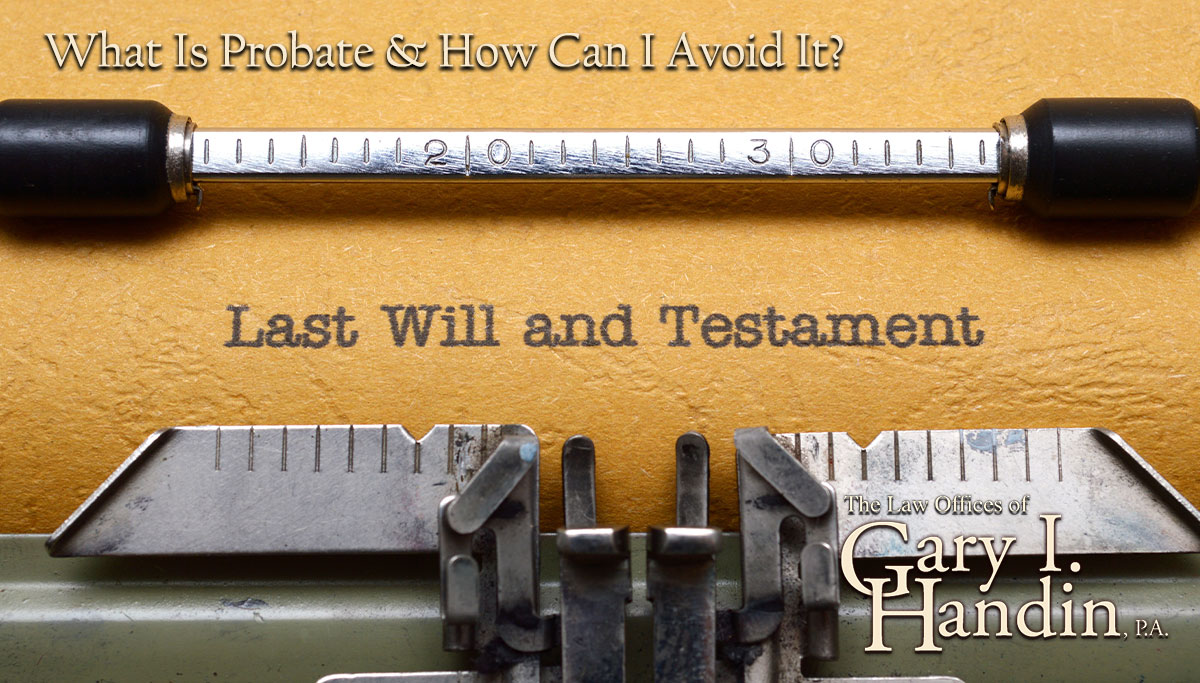
Probate is the Court-supervised procedure by which someone who dies can get the property they leave behind at the time of death to their designated beneficiaries.
Negatives To Probate
- Costs involved (thousands of dollars in probate attorney fees & court costs)
- Length of time it takes (6-12 months)
Do I Need To Have A Probate If I have a Will?
Yes.
If you own anything in your own name at the time of your death, a probate will be necessary to distribute your assets as you would like them to be distributed.
Do I Need To Have A Probate If I Do Not Have A Will?
Yes.
The answer is the same as above, EXCEPT that you don’t get to say how your assets are to be distributed. Instead, Florida statutes control who gets your assets, which may no be the way you would like it to be distributed.
How Can I Avoid Probate?
There are a number of ways to avoid probate.
Joint Ownership of Real or Personal Property
This refers to ownership of real property or personal property (banks accounts, etc.) with another person. The survivor gets ownership upon your death without probate. Husband and wife can take title as “tenants by the entireties”, which is a special type of joint tenancy reserved for married couples. It gives protection against the creditors of one or the other one of the two partners, as well as avoiding probate.
Life Estate Quitclaim Deed
You own the property until your death at which time it goes to the person you name as the “remainderman”.
Caveat – if you want to sell the property during your lifetime or refinance the property, you will need the remainderman to agree and sign also, UNLESS you use.
“Ladybird” Quitclaim Deed
Also known as an “Enhanced life estate deed”, this deed allows you to sell the property during your lifetime or refinance WITHOUT the consent of the remainderman. You still own it during your lifetime, and upon your death it goes to your designated “remainderman” without the need for probate.
Transfer On Death (T.O.D.)
T.O.D. accounts allow you to transfer the asset, usually stocks or other securities, upon your death directly to a named beneficiary.
Pay On Death (P.O.D.)
P.O.D. accounts, usually used for bank accounts or certificates of deposit. Are paid to the named beneficiary upon your death without the need for probate.
Revocable Living Trusts
All of your assets are placed in your name as Trustee of your trust and upon your death, your successor Trustee distributes your assets in accordance with your directions and no probate is required.
Probate Attorney In Coral Springs
If you have any questions about the above, please feel free to contact Gary I. Handin, Attorney at Law by phone at 954-796-9600 or by email at Ghandin@Handinlaw.com.
For more helpful legal information like this, check out our legal blog and follow Handin Law on Facebook.





